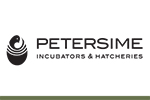 by: Dr. Mohammad Fakhoury - Lebanon
by: Dr. Mohammad Fakhoury - Lebanon
Introduction:
Poultry nutrition plays a crucial role in ensuring the health, growth, and productivity of poultry while meeting the increasing demands of the global population. As we look towards the future, there is an urgent need to revolutionize poultry nutrition. To achieve this, we must establish a thriving, sustainable, efficient, and environmentally responsible industry.
The poultry industry faces numerous challenges, including the need to produce more food with limited resources, mitigate environmental impacts, and meet the changing preferences and expectations of consumers. Addressing these challenges requires a comprehensive approach that integrates advancements in scientific research, sustainable practices, and industry collaboration.
Scientific research is fundamental in driving innovation in poultry nutrition. Ongoing studies delve into the complex interactions between nutrients, genetics, and health, leading to a deeper understanding of the specific nutritional needs of poultry at various growth stages. These advancements enable the development of precise and optimized feed formulations, which maximize performance, enhance immune function, and improve overall bird welfare.
Sustainable practices are crucial to ensuring a prosperous future for the poultry industry. By adopting sustainable sources for feed ingredients, reducing environmental impact, and prioritizing animal welfare, the industry can align with conservation and responsible stewardship principles. This involves implementing practices that reduce greenhouse gas emissions, conserve water resources, and minimize waste generation, all while maintaining the highest standards of animal care.
Collaboration within the industry is essential to fostering innovation and achieving widespread change in poultry nutrition. By bringing together producers, nutrition experts, researchers, policymakers, and industry associations, we can pool our collective knowledge, share best practices, and work towards common goals. Collaboration facilitates the development of industry-wide standards, certifications, and guidelines, ensuring that advancements in poultry nutrition are implemented consistently and effectively across the sector.
By revolutionizing poultry nutrition for a prosperous future, we aim not only to meet the nutritional needs of a growing population but also to do so in a sustainable and responsible manner. This requires reducing the environmental footprint of poultry production, conserving natural resources, and enhancing animal welfare. Through a comprehensive approach that integrates scientific research, sustainable practices, and industry collaboration, we can pave the way for a poultry industry that is efficient, resilient, and capable of meeting future demands.
As we embark on this journey, it is essential to remain committed to continuous improvement, innovation, and knowledge sharing. By working together, we can revolutionize poultry nutrition, create a prosperous future for the industry, and contribute to a sustainable and food-secure world.
Noteworthy, revolutionizing poultry nutrition for a prosperous future requires a comprehensive approach that integrates advancements in scientific research, sustainable practices, and industry collaboration. Here are some key steps that can help achieve this vision:
- Research and Development
- Sustainable Feed Ingredients
- Precision Nutrition
- Nutritional Education
- Collaboration and Partnerships
- Sustainability and Animal Welfare
- Technological Integration
- Regulatory Support
By implementing these strategies, we can revolutionize poultry nutrition, paving the way for a prosperous future, and some of the items mentioned may be put into practice. This comprehensive approach combines science, sustainability, and collaboration to ensure healthier, more efficient, and environmentally responsible poultry production practices.
Research and Development
Research and development (R&D) in the context of poultry nutrition involves a systematic and investigative process aimed at developing knowledge, creating innovative solutions, and improving practices within the poultry industry. Here is an expanded explanation of each point:
A) Nutrient Requirements and Feed Formulation
- Precision Nutrition: Researchers are delving into the specific nutritional requirements of poultry at different life stages. This includes understanding metabolic processes, genetics, and environmental factors that influence nutrient utilization.
- Optimizing Feed Formulation: R&D focuses on precise feed formulation, achieving a balance of essential nutrients to meet the physiological needs of birds. Advanced tools, including computational models and data analysis, help refine nutrition formulations to enhance performance and resource efficiency.
B) Protein Sources and Alternative Ingredients
- Insect Proteins: Researchers are exploring the feasibility and nutritional benefits of integrating insect proteins into poultry diets, considering factors such as amino acid profiles and digestibility.
- Single-Cell Proteins: R&D is investigating the potential of single-cell proteins derived from microorganisms as alternative and sustainable protein sources in poultry feed.
C) Gut Health and Microbiome Research
- Probiotics and Prebiotics: Ongoing studies focus on understanding the interactions between nutrition and the gut microbiome. Research is aimed at identifying probiotics and prebiotics that enhance gut health, nutrient absorption, and overall bird immunity.
- Disease Prevention: R&D is exploring dietary strategies for preventing common poultry diseases, emphasizing the role of feed additives and specific nutrient combinations in disease resistance.
D) Technological Innovations:
- Precision Livestock Farming: Researchers are examining the integration of sensing technologies, the Internet of Things (IoT), and data analytics for real-time monitoring of poultry health, behavior, and nutritional status.
- Automation: Advances in automation, including robotic systems, are being explored for tasks such as precision feeding, waste management, and environmental control in poultry houses.
E) Environmental Impact and Sustainability
- Life Cycle Assessments: R&D involves conducting comprehensive life cycle assessments to determine the environmental impact of various poultry production systems. This includes analyzing factors such as carbon footprint, water use, and land occupancy.
- Circular Economy Practices: Researchers are exploring ways to reduce waste and optimize resource use within a circular economy framework. This includes utilizing by-products and waste from poultry production in other processes.
F) Health and Welfare Considerations
- Behavioral Research: Researchers study poultry behavior to understand how nutrition affects stress levels, social interactions, and overall welfare.
- Antibiotic Alternatives: Focusing on antibiotic stewardship, R&D is investigating alternative strategies, such as plant-based compounds and immune-boosting supplements, to maintain poultry health without heavy reliance on antibiotics.
G) International Collaboration and Knowledge Exchange
- Global Partnerships: Collaborative efforts involve researchers and industry experts from various regions to facilitate knowledge exchange and share best practices on a global scale.
- International Research Networks: Multinational and cross-institutional research networks work together on large-scale projects addressing global challenges in poultry nutrition.
H) Consumer Perceptions and Preferences
- Nutritional Labeling: Research explores effective ways to communicate nutritional information about poultry products to consumers, considering factors such as sustainability, animal welfare, and health benefits.
- Consumer Education: R&D initiatives focus on understanding consumer perceptions, preferences, and behaviors related to poultry nutrition, influencing informed choices.
I) Innovations in Feed Processing and Technology
- Extrusion and Pelleting: Researchers investigate advanced processing techniques such as extrusion and pelleting to enhance the nutritional quality and digestibility of poultry feeds.
- Nanotechnology: Applications of nanotechnology in feed additives are studied to improve nutrient delivery and bioavailability.
J) Monitoring and Continuous Adaptation
- Data-Driven Decision Making: R&D emphasizes the importance of continuous monitoring and data analysis to adapt nutrition programs in response to variables and ensure optimal performance and resource use.
- Agile Research Methodologies: Research methodologies are designed to be adaptable, allowing for rapid adjustments based on emerging challenges, industry trends, and technological breakthroughs.
Through continuous knowledge development and adoption of innovative solutions, the industry can overcome challenges, meet evolving consumer expectations, and contribute to a sustainable, efficient, and prosperous future.
2. Sustainable Feed Ingredients
Sustainability and environmental considerations are central to revolutionizing poultry nutrition for a prosperous future. Here are key aspects related to sustainability and environmental considerations:
A) Resource Efficiency: Researchers focus on developing strategies to maximize resource efficiency in poultry production. This includes optimizing feed formulations to reduce waste and minimize the environmental footprint of feed production. By crafting diets with precise nutrient ratios and considering the nutritional needs of poultry at various stages, researchers aim to reduce excess nutrient excretion and its associated environmental pollution.
B) Alternative Protein Sources: Exploring and utilizing alternative protein sources plays a crucial role in sustainable poultry nutrition. Researchers study the potential of insect-based proteins, algae, and single-cell proteins as alternatives to traditional protein sources such as soybean meal and fishmeal. These alternative protein sources have a lower environmental impact and require fewer resources and land compared to traditional sources. By incorporating these sustainable protein sources into poultry diets, researchers contribute to reducing the environmental burden of feed production.
C) Circular Economy: Researchers advocate for the concept of a circular economy in poultry production. This involves reducing waste generation and finding valuable uses for by-products. For example, by-products from food manufacturing or agricultural residues can be used as feed ingredients, reducing waste and enhancing resource utilization. Additionally, integrating manure management strategies such as composting or anaerobic digestion can convert poultry waste into valuable resources like organic fertilizers or renewable energy.
D) Environmental Impact Assessment: Researchers conduct environmental impact assessments to evaluate the consequences of different poultry feeding practices. These assessments consider factors such as greenhouse gas emissions, energy consumption, water use, and land occupation. By measuring the environmental impact of various production systems and feeding strategies, researchers can identify areas for improvement and develop more sustainable approaches.
E) Climate Change Mitigation: Mitigating the effects of climate change is a critical aspect of sustainable poultry nutrition. Researchers explore methods to reduce greenhouse gas emissions associated with poultry production, such as methane and nitrous oxide from manure management and feed production. This includes implementing measures to enhance nutrient utilization, improve feed efficiency, and promote sustainable land management practices to reduce the carbon footprint of poultry production.
F) Biodiversity Conservation: Sustainable poultry nutrition also involves preserving biodiversity. Researchers study the environmental impacts of feed ingredient sources to minimize deforestation and habitat destruction associated with agriculture. They prioritize feed ingredient sources that are produced responsibly and support sustainable land-use practices that protect biodiversity and ecosystems.


















